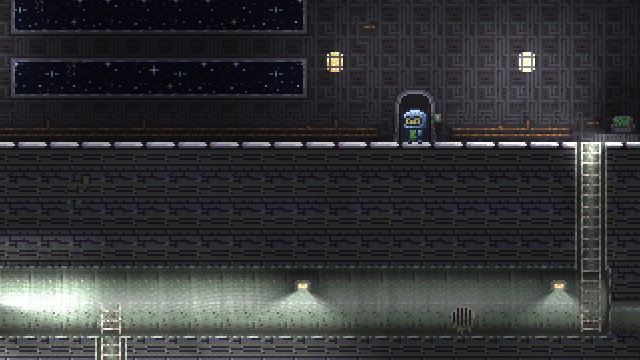This post has not been edited by the GamesBeat staff. Opinions by GamesBeat community writers do not necessarily reflect those of the staff.
Recently, I caught wind of a what could become an indie hit: Astronaught. The game, thus far, is merely a mock-up, and only really exists in the mind of its creator, Stefan Schwarzien, and at current, needs funds in order to simply exist.
[embed:http://www.youtube.com/watch?v=mlfBwfTbrA0 ]
The game shows real promise, and it's something I hope to be able to play one day- you can help fund it right here.
What makes this game special? Well, for starters, I doubt any big studio would be daring enough to take on a project quite like this. Sure, they might be able to get it done in a comparatively small period of time, but will it have been worth the effort? Worth the funds? Most big studios, as you know, will just say no. Presumably burned by their previous experiences with risks, they just stick to a formula. Thus, Call of Duty will keep rolling out year after year, with no real change in gameplay, a continually weakening single-player campaign, followed by massive sales.

So what's the point of this article? Hasn't this been said time and again about the industry and genre stagnation? Yes, it's been said over and over and will be said over and over until something changes. Thus the question: what's going to change? Will people finally get sick of the FPS as a genre and move on? Unlikely- people haven't gotten sick of platformers, and thus Mario continues to sell. What could happen, however, is that the big studios could grow complacent. Lazy. At this point, when War FPS: We Aren't Trying Anymore is announced, one of two things could happen:
1. An indie game shines forth as a beacon unto the gaming masses, therefore spawning revolution- War FPS barely sells as a result!
2. A rival company trying that's been trying for years to catch up with War FPS with their series- Big Boy Guns– decides to stop wasting time with the number two spot on the charts and put out something completely different.
When this occurs, there's another possible set of options:
1. Rivalcompany fails. All the money that was supposed to go into Big Boy Guns wound up in a project that was extremely well polished graphically, but features uninteresting characters, broken gameplay, etc., mostly due to a lack of know-how in how to make a game in the new genre.
2. Rivalcompany fails again. This time, the game is a success from a technical standpoint, it's fun and it's well put together with plenty of polish. Unfortunately, while it's extremely well made, it's extremely niche oriented, and only a few people are actually interested.
3. Rivalcompany, get this- fails. Alright, what now, you ask? The game is extremely well made from every possible angle, it appeals to everybody and has the power to cure disease. What's gone wrong this time? It gets overlooked for War FPS. Thus, nobody buys it, and Rivalcompany decides to go back to making Hanafuda cards.
4. Rivalcompany succeeds. This is the reaction that needs to occur- finally, the perfect game from scenario number three is created, and through advertising, word of mouth, or some other form of (presumably illegal) telepathic information dissemination, the game manages to become popular. Thus, the cycle begins anew. Interest in War FPS wanes over the years, along with its budget. In a last-ditch effort to take back its fans, War FPS: Super Ultra Ultimate Tactical Tacked-On Special Features and Assorted Garbage Nobody Cares About is released, and upon its failure to sell, the War FPS makers decide to try mimicking Rivalcompany, albeit to little avail.
And for a few years, the industry is thus "saved". Until, of course, Rivalcompany grows lazy and the whole thing happens all over again. This cycle of bland, high-selling games could be averted if, instead of trying to build better tires, the big players in the game industry focus on the rest of the car. Unfortunately, it's unlikely to happen due to heavy corporate influence- the executives at most big companies don't care about making experiences- they care about making money.
This is why the first scenario, however improbable, must be made possible. It already seems to be happening with Minecraft, which is swiftly making its way to the fringes of gaming society. If there's to be a new cycle, it should be with indie studios constantly supplanting one another for top spots. It would keep the marketplace healthy and ensure that genre stagnation doesn't set in. And it would keep the industry- the indiestry? on its toes.
Unless this happens, the industry can't move beyond Big Boy Guns and War FPS.
